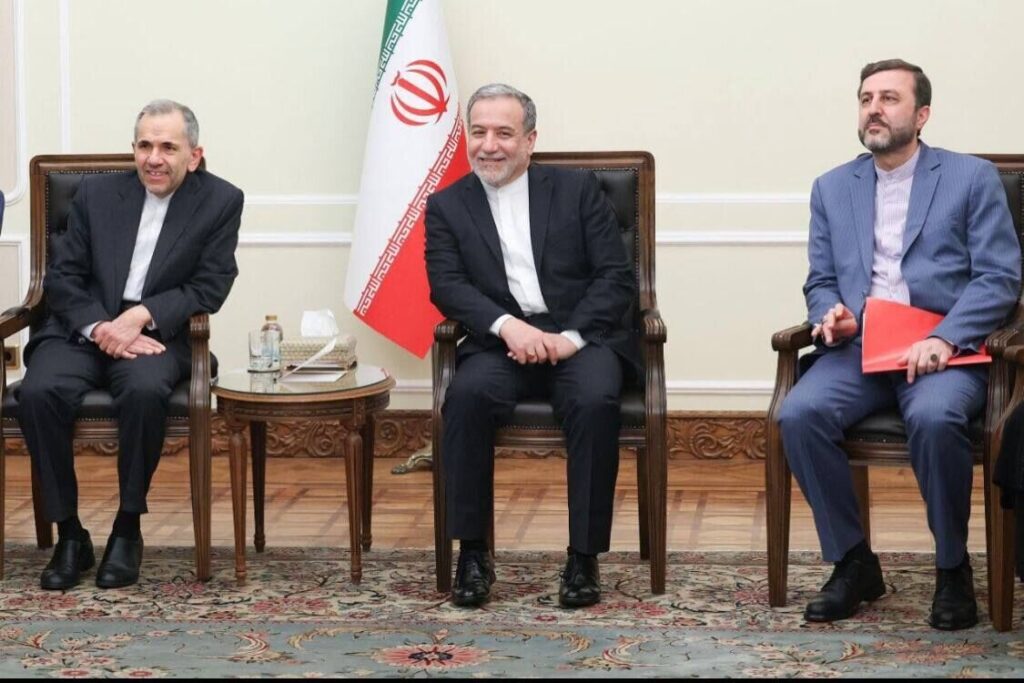Tehran-The initiation of indirect nuclear negotiations between Iran and the US in the Oman capital has attracted extensive praise from regional powers that have welcomed diplomatic initiatives as a constructive step towards elimination and long-term regional stability.
The first round of the High Stakes took place in Muscat on Saturday, prompted by Omani Foreign Minister Bador bin Hamad al-Basaydi, and the Iranian delegation led by Foreign Minister Abbas Aragut and the US-led Iranian delegation was represented by Special Region envoy Steve Witkov. After a four-round exchange of messages, which participants described as a “calm and respectful environment,” both sides agreed to be called “constructive” next Saturday.
The Persian Gulf Cooperation Council welcomes consultations
Jasim Mohammed al-Budaiwi, executive director of the Persian Gulf Cooperation Council (GCC), praised the host of the dialogue in Omani, calling it a “wise approach” to fostering peace in the region. In a statement posted on the official GCC website, Budaiwi said the move reflects Muscat’s longstanding role in promoting dialogue between nations and building bridges.
“The GCC countries continue to work towards peaceful solutions, regional stability and global security through solid international partnerships,” he emphasized. Budaiwi also expressed his hope that the speech would open new paths for cooperation between Tehran and Washington, and benefit the wider region.
Arab countries reflect support for the path of diplomacy
Saudi Arabia, Kuwait, Qatar, Bahrain, Egypt and Iraq have all issued all statements welcoming consultations and support for diplomatic routes as a favorable means to resolve years of tensions.
Riyadh expressed strong support for Omani mediation and ongoing negotiations through a statement from the Ministry of Foreign Affairs. It reiterated its belief in dialogue as a key to dealing with both regional and international conflicts, and expressed hope that the outcome of Tehran-Washington’s involvement will contribute to peace and community efforts of the collective.
Kuwait similarly praised Oman’s diplomatic role and expressed optimism that negotiations would promote peace and stability. The Ministry of Foreign Affairs has confirmed Kuwait’s commitment to dialogue and peaceful conflict resolution, calling the move a “positive step.”
Qatar defined consultations and emphasized the “positive spirit” that praised both Iran and the United States in constructive tones. Doha reaffirms its full support for diplomacy and calls it a centre for ensuring peace, development and security in the region.
The Iraqi Foreign Ministry emphasized its consistent stance in favor of the negotiated solution, and welcomed what was called “positive indicators” from the first round of the dialogue. Baghdad expressed optimism that Muscat consultations will help ease tensions and build trust between Iran and the United States.
Bahrain reflected these feelings, praised Omani’s efforts and called for continued peaceful involvement. Manama confirmed support for the initiative aimed at resolving conflicts through dialogue, highlighting the importance of diplomacy to foster regional and international peace.
Egypt’s Foreign Ministry has issued one of the strongest supporters of Omani mediation, calling it “important and constructive.” Cairo emphasized that political solutions are the only path in a crisis-filled region, not military conflict.
“The role of the Sultan is essential to prevent the region from falling into wider conflict,” the ministry said, but praised the cooperative attitude taken by both Iran and the US Egypt, expressing hope that the consultation will not only lead to bilateral understanding, but also a mild, mild climate.
Iran’s chief negotiator Abbas Aragchi said ahead of the session that Tehran has provided diplomacy with a “good opportunity” to resolve prominent nuclear issues, achieve sanctions resolution and also pays attention to long-term negotiations.

